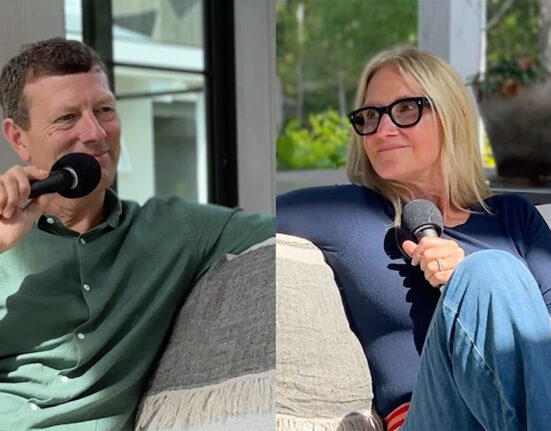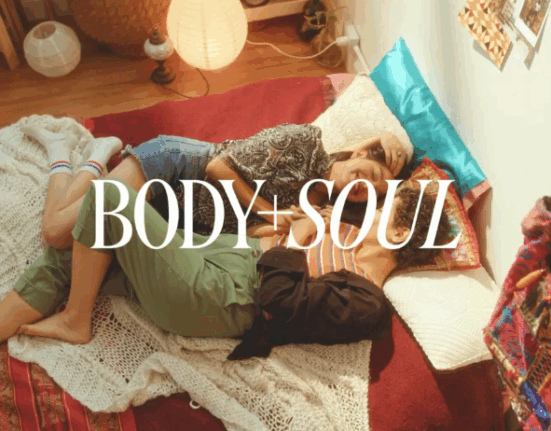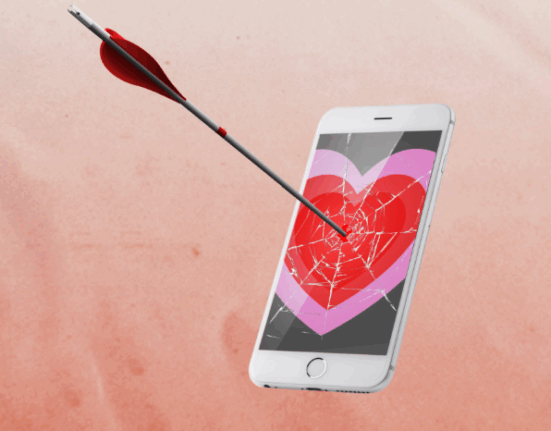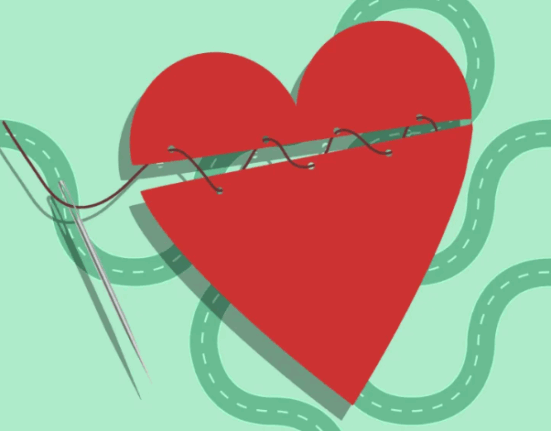Last Updated on March 17, 2025 by Rachel Hall
When it comes to love, many people wonder what’s truly normal in a relationship. The ups and downs of partnerships can feel confusing, especially when faced with arguments, anxiety, or moments of self-doubt. A qualified relationship therapist shares expert insights on the difference between healthy behaviours and red flags that shouldn’t be overlooked.
Whether you’re starting a new relationship, navigating challenges in a long-term commitment, or reflecting on past experiences, understanding what to normalise is key. Yes, love requires work, but knowing when to walk away or when to support each other through change can make all the difference in living a happy, healthy life.
- Why Knowing What’s Healthy (And What’s Not) In Love Can Change Everything
- The 7 Things You Should Normalise In A Healthy Relationship
- 6 Red Flags A Relationship Therapist Says You Should Never Normalise
- How To Know If You’re Normalising Unhealthy Love
- Expert Advice: How To Normalise Healthy Love And Break Toxic Cycles
- Final Thoughts: You Deserve A Healthy, Happy Love Life
- FAQs About Healthy Love, Red Flags, And Relationship Challenges
Why Knowing What’s Healthy (And What’s Not) In Love Can Change Everything
The beginning of any relationship can feel like an emotional high. You’re swept up in the excitement, and it’s easy to ignore potential red flags. Over time, however, those ups and downs become clearer, and so does the need to distinguish between typical relationship challenges and signs of abuse or emotional neglect.
A relationship therapist shares that many people’s struggles come from misunderstanding what’s normal. Some believe that constant arguments, emotional distance, or anxiety are simply part of love. While disagreements at times are expected, constant conflict or feeling afraid to communicate openly are warning signs.
By learning what behaviours to encourage, and what to address, you’ll gain the clarity you need to make informed decisions about your relationship.
The 7 Things You Should Normalise In A Healthy Relationship
It’s important to know that a healthy relationship doesn’t mean there’s never any conflict or difficulty. Rather, it’s about how couples handle these situations and grow together. Here’s what a relationship therapist shares about what to normalise in love.
1. Healthy Disagreements That Lead To Growth
Every couple will argue from time to time. Disagreements at times are a normal part of any close intimate relationship. The difference lies in how these arguments take place. A healthy relationship allows both partners to communicate respectfully without resorting to blame, insults, or attacks.
The purpose of a disagreement isn’t to win or to hurt another person, but to gain clarity and understanding about each other’s perspectives. By working through disagreements constructively, both partners can grow closer and establish trust.
2. Expressing How You’re Feeling—And Being Heard
In a healthy relationship, you should feel safe sharing your thoughts, emotions, and fears. You shouldn’t have to hide your true feelings out of fear of rejection or retaliation. When a partner listens and validates your experience, it creates a safe space for connection.
A relationship therapist shares that constant emotional suppression can lead to chronic anxiety and unhappiness. Encourage openness by making it a daily habit to check in with each other’s feelings, wants, and needs.
3. Taking Time Apart To Walk Your Path
Many people mistake commitment for constant closeness. But time apart is vital for a healthy partnership. A relationship therapist shares that taking a step back to focus on personal growth allows each person’s individuality to flourish.
Spending time alone or with family and friends isn’t a red flag; it’s an opportunity to grow as an individual. When both partners pursue their passions and live independently as well as together, the relationship strengthens.
4. Supporting Each Other’s Growth And Change
Change is inevitable in long-term love. People change, interests shift, and life circumstances evolve. A healthy relationship involves supporting one another’s goals and personal development.
Perhaps one partner decides to explore a new career or take up a new hobby. The other should encourage them rather than demand they stay the same. When both partners support each other’s growth, it reduces fear of change and increases happiness.
5. Emotional Safety And Vulnerability
An essential foundation of love is emotional safety. You should feel safe to express vulnerability without fear of judgement. In a healthy relationship, both man and woman or any partner should be able to share personal struggles and receive compassion.
A relationship therapist shares that emotional safety prevents anxiety and fosters deep connection. Intimate relationships built on safety are better able to weather life’s ups and downs.
6. Saying “No” Without Fear Or Guilt
Boundaries are not selfish—they are essential. You shouldn’t be made to feel guilty for asserting your limits, whether in physical, emotional, or practical matters. For example, if you’re not comfortable with a particular activity, you have the right to say “no” without fear of punishment.
When partners respect each other’s boundaries, it’s a sign of healthy love and mutual respect.
7. Celebrating The Happy Moments—Big And Small
A happy relationship is nurtured in the little things. Small acts of kindness and service—whether it’s making a cup of tea, sharing a laugh, or offering a hug—create a sense of connection.
A relationship therapist shares that couples who celebrate daily victories and express gratitude tend to keep their bond strong. Don’t wait for special occasions to show appreciation.
6 Red Flags A Relationship Therapist Says You Should Never Normalise
While it’s important to normalise certain behaviours, knowing what shouldn’t be tolerated is equally critical. A relationship therapist shares these key red flags to watch for.
1. Walking On Eggshells Constantly
If you’re always afraid that your words or actions might trigger an argument, it’s a sign of emotional instability. Constantly walking on eggshells creates chronic stress and anxiety. In a healthy relationship, partners can communicate openly without fear.
2. Constant Criticism Or Belittling
Put-downs, sarcasm, or undermining comments erode self-esteem. Even if they’re presented as jokes, constant criticism damages emotional well-being. A partner should encourage, not demean.
When this behaviour becomes a pattern, it can take place alongside emotional or physical abuse. A relationship therapist shares that subtle manipulation is often overlooked, but it’s a serious red flag.
3. Lack Of Support During Tough Times
Life’s challenges—whether illness, job loss, or family crises—are inevitable. A partner who disappears during these times shows a lack of commitment and empathy. You need someone who stands by you when times are tough.
If your partner dismisses your struggles or refuses to support you, it’s a warning sign that the relationship may be one-sided.
4. Feeling Inferior Or “Less Than”
No one person should hold power over the other. If you constantly feel inferior, or as if your opinions don’t matter, it’s a toxic dynamic. A relationship therapist shares that this imbalance is a sign of emotional control and abuse.
5. Fear Of Speaking Your Truth
If you’re afraid to communicate openly or express dissatisfaction, it’s a major red flag. Healthy relationships require honesty. If you can’t speak freely, it may be time to address these concerns or consider whether it’s time to quit.
6. Unhappiness That’s Constant, Not Occasional
Every relationship has its ups and downs, but prolonged unhappiness indicates deeper problems. You shouldn’t feel miserable for a long time without seeing positive change.
A relationship therapist shares that people’s desire for love can lead them to tolerate chronic unhappiness, but long-term happiness is an essential goal in any partnership.
How To Know If You’re Normalising Unhealthy Love
It’s natural to wonder whether you’re overreacting or seeing things. Ask yourself these questions:
- Do I feel safe and respected by my partner?
- Am I constantly walking on eggshells?
- Does my partner support my dreams and personal growth?
- Am I happy most of the time, or do I feel drained and unhappy?
- Do I blame myself for my partner’s bad behaviour?
If the answers raise concerns, it’s time to explore these issues further. You need to know that love shouldn’t involve fear, chronic anxiety, or abuse.
Consider taking a quiz on a reputable website or speaking to a qualified relationship therapist for guidance.
Expert Advice: How To Normalise Healthy Love And Break Toxic Cycles
A relationship therapist shares that breaking unhealthy patterns requires intentional effort. Here’s advice to create lasting change:
- Communicate your wants and needs openly.
- Set boundaries and maintain them, even if it’s difficult.
- Encourage your partner to do their own work.
- Celebrate each happy moment, reinforcing positive connection.
- Seek support from trusted friends, family, or professionals.
Final Thoughts: You Deserve A Healthy, Happy Love Life
Understanding what’s normal and what’s not is essential in fostering a healthy, happy relationship. Whether you’re at the beginning of a new relationship or facing long-standing issues, remember: You have the right to live with love, respect, and support.
FAQs About Healthy Love, Red Flags, And Relationship Challenges
What’s the difference between a healthy relationship challenge and a red flag?
A challenge is something you work through together; a red flag is an ongoing pattern of harm or disrespect.
How do I know if I’m normalising unhealthy behaviour?
If you feel afraid, unhappy, or dismissed constantly, it’s time to reassess.
When should I walk away from a relationship?
When efforts to communicate and address issues fail, or if abuse is present, it’s time to quit the relationship.

Rachel Hall, M.A., completed her education in English at the University of Pennsylvania and received her master’s degree in family therapy from Northern Washington University. She has been actively involved in the treatment of anxiety disorders, depression, OCD, and coping with life changes and traumatic events for both families and individual clients for over a decade. Her areas of expertise include narrative therapy, cognitive behavioral therapy, and therapy for traumatic cases. In addition, Rachel conducts workshops focusing on the psychology of positive thinking and coping skills for both parents and teens. She has also authored numerous articles on the topics of mental health, stress, family dynamics and parenting.








Leave feedback about this